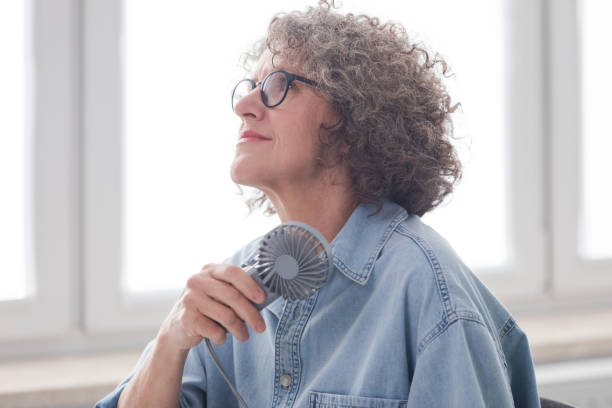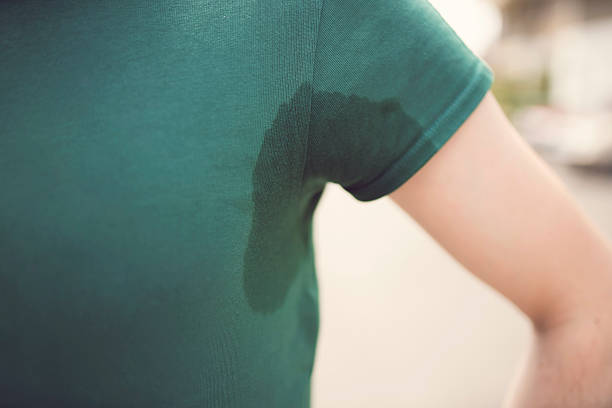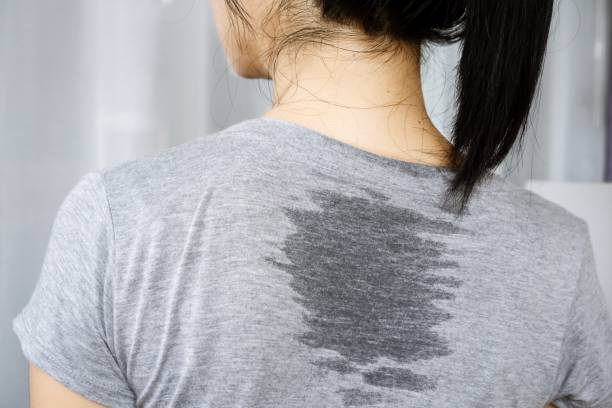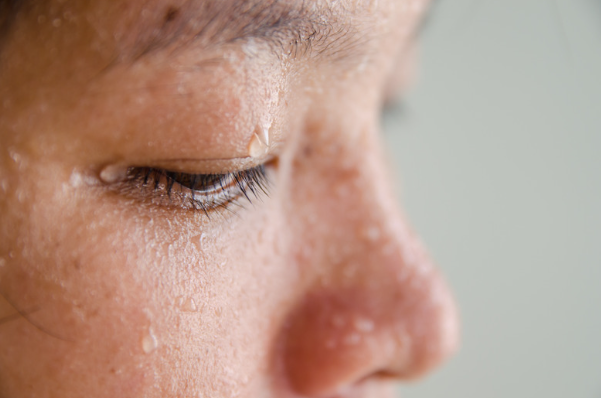Health
What are the Surprising Health Benefits of Sweating
Sweating is a normal body function that most people experience on a regular basis. But have you ever considered whether sweating has any health benefits besides cooling us down? In this article, we’ll look at the potential benefits of sweating and how it might improve our general health.
Sweating and Detoxification
Sweating may help the body cleanse. When we sweat, our pores expand and expel toxins that have accumulated in our system. This can assist to improve skin health and promote a sense of freshness.
Sweating is commonly connected with exertion, yet our bodies sweat naturally to maintain temperature and expel waste. Sweating helps to remove poisons from our body, including heavy metals, alcohol, and cholesterol. Sweat evaporates from our skin, removing these toxic toxins and leaving us feeling invigorated.
Sweating, in addition to purifying the body, can improve our skin health. Sweating helps to clear our pores and prevents the development of debris, oil, and dead skin cells. This can lessen the likelihood of acne breakouts while also improving our skin’s general appearance.

Sweating and Weight Loss
Sweating can also help enhance our immune system. According to research, sweating causes our bodies to manufacture dermcidin, a natural antibiotic that can help fight off hazardous germs and viruses.
Sweating while exercise can help you lose weight. As we exercise, our bodies heat up, leading us to sweat and burn calories. This can help you achieve and maintain a healthy weight.
When we exercise, our heart rate rises and our bodies work harder to deliver oxygen to our muscles. This greater exertion causes an increase in metabolic rate, which implies that we burn more calories. Sweating is an obvious sign that our bodies are working hard and burning fat.
Sweating also helps us control our body temperature during activity. Sweating cools us down, allowing us to exercise for longer periods of time. This can lead to increased calorie expenditure and better weight reduction outcomes.
Sweating and Improved Skin Health
Sweating detoxifies our body while also promoting healthier skin. When we sweat, our pores open, releasing dirt, oil, and other pollutants that can clog our skin. This can help prevent acne and outbreaks, giving you a cleaner complexion.
Sweating not only unclogs pores, but it also helps to balance our skin’s natural oils. When we sweat, the sebaceous glands in our skin create sebum, a natural moisturizer. This can help hydrate our skin, alleviate dryness, and boost overall skin health.
Regular sweating can help increase blood flow to the skin, bringing oxygen and nutrients that produce a healthy shine. Increased blood circulation can also assist to produce collagen, which keeps our skin firm and youthful.

Sweating and Stress Reduction
Sweating has been shown to improve our mental and emotional health in addition to its physical benefits. Sweating while exercise releases endorphins, also known as “feel-good” hormones. Endorphins can help with stress reduction, mood improvement, and overall well-being.
Physical activities that cause perspiration, such as jogging, cycling, or hot yoga, can be an effective stress reliever. Sweating helps us release tension and pent-up energy, resulting in a calmer and more relaxed state of mind.
Sweating while exercise might also improve sleep quality. When we sweat, our core body temperature rises, and as it cools, our body knows it’s time to sleep. This can help us regulate our circadian rhythms and have a better night’s sleep.
The Relationship Between Sweating and Immune System Health
According to research, sweating can benefit our immune system. When we sweat, our bodies manufacture a natural antibiotic known as dermcidin. This antimicrobial peptide helps to combat harmful bacteria and viruses, lowering our vulnerability to infections and illnesses.
Sweating also promotes blood circulation throughout our bodies, which aids in the transfer of immune cells and nutrients to various parts of the body. This increased circulation can help to strengthen our immune system and boost its ability to fight off invaders.
Sweating, in addition to having a direct impact on the immune system, can indirectly benefit immunological function by reducing stress. Chronic stress can damage the immune system, increasing our susceptibility to infections and disorders. Sweating and decreasing stress can help us maintain a healthy immune system.

Sweating and Improved Cardiovascular Health
Regular sweating while exercise might have a substantial impact on our cardiovascular health. Sweating occurs as our bodies heat up during physical exertion. Sweating regulates our body temperature and improves our heart health.
When we workout and sweat, our heart rate rises and our blood vessels expand. This promotes blood flow throughout our body, supplying oxygen and nourishment to our muscles and organs. Increased blood flow can assist to lower blood pressure, minimize the risk of heart disease, and enhance overall cardiovascular health.
Sweating when exercising also helps to strengthen the heart muscle. Physical activity causes our hearts to pump harder, which over time can contribute to improved heart function and increased cardiac output. Regular exercise and sweating can help keep the heart healthy and lower the risk of cardiovascular disease.
Tips for Maximizing the Health Benefits of Sweating
To reap the most health benefits from sweating, we must include frequent activity in our daily routine. Aim for at least 150 minutes of moderate-intensity exercise each week, or 75 minutes of vigorous-intensity exercise. This can involve brisk walking, jogging, swimming, and cycling.
Stay hydrated to help the sweating process and replenish fluids lost through perspiration. Drink plenty of water all day, especially before, during, and after activity. Electrolyte-rich liquids can also be advantageous, particularly after strenuous exercise or in hot conditions.
Choose breathable garments and moisture-wicking textiles to help you stay cool and comfortable while exercising. This can help to reduce excessive sweating and the risk of skin irritation or rashes.
Finally, listen to your body and take pauses as needed. Sweating is a normal process, but excessive exercise can cause dehydration and other health problems. If you feel lightheaded, dizzy, or have chest pain while exercising, you should stop and seek medical attention if needed.
Conclusion
So, while sweating may not always be enjoyable, it does have some unexpected health advantages. Sweating can improve our general health by detoxifying, supporting the immune system, and even aiding in weight loss. Understanding the benefits of sweating and implementing regular exercise into our lives allows us to accept this natural body process and respect our bodies’ capabilities.
Sweating offers a range of benefits, including improved skin health, stress reduction, stronger immune system, and cardiovascular health. So, the next time you break a sweat, remember that you’re not simply cooling off; you’re also benefiting your body by improving overall health and well-being. Embrace the benefits of sweating and incorporate it into your daily wellness routine.
Trusted Health, Wellness, and Medical advice for your well-being


